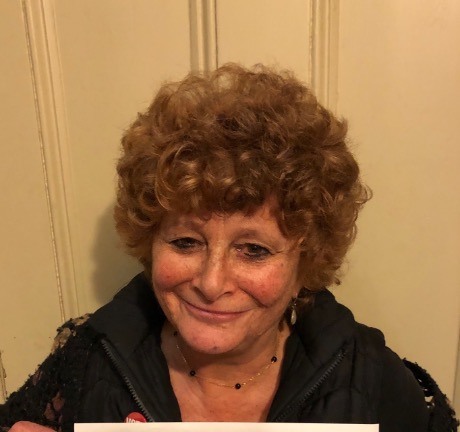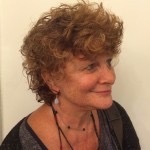Profile

Lynne Segal
Birth:
1943
Training Location(s):
PhD, University of London (1969)
Hons. BA, University of New South Wales (1964)
Primary Affiliation(s):
Birkbeck, University of London (1999-2020)
Psychology’s Feminist Voices Oral History Interview:
Other Media:
Career Focus:
Feminism; sex and gender; ageing and joy; community activism; politics.
Biography
Lynne Segal is an Australian-born, British-based, psychology-trained, public intellectual, socialist, feminist, author and activist. For Segal, all of these are central to her self-description. In the bio section of her twitter account, she describes herself as: “Professor of Psychology & Gender Studies. Birkbeck College.” and adds “feminist scholar, writer, activist – when optimism allows, with a little help from my friends”.
Lynne Segal was born in Sydney, Australia on the 29th of March. While culturally Jewish, she was raised atheist by her two physician parents. Notably, her mother was the second female surgeon in Australia. Her interest in politics and social justice began in her latter teen years, where Segal became involved with the libertarian movement in Sydney.
Her interest in understanding people led her to choose Psychology as a major at Sydney University. Very quickly, however, she grew frustrated by a discipline which, as she puts it, “mainly seemed to be running rats through mazes”, rather than teaching students anything about human behaviour (or rats’ for that matter). She critiqued social experiments as having nothing to do with actual social groups, and neuropsychology as only telling us “the cultural story we attach to it”, even as it is believed to tell us something about the functioning of the brain.
In 1970, after obtaining her teaching licence, Segal moved as a single parent to England, where she took a position at Enfield College of Technology (later Middlesex University). The burgeoning era of the women's liberation movement in the west unfolded during this time, and greatly impacted her life. While situated in the academy, Segal found herself more drawn to feminist activities, community politics and activism on the ground. Not wanting to impose on her students psychology’s limited pedagogical approach of “running rats through mazes”, Segal wove her criticism and keen perception of critical social issues into her teaching as a professor of social psychology. As she puts it, the 1970’s allowed for an opportunity to be creative.
As second wave feminism surged, she dedicated much of her energy to grass roots politics. A mother herself, she participated along with other feminists in the creation of collective nurseries. She also helped set up a women's centre in Islington, established an alternative newspaper which she helped produce (the Islington Gutter Press), and helped unionize workers. Furthermore, she also went to various schools to lecture about feminism and sexism. As a socialist and feminist, her approach focussed on the family, combating biological reductionism in psychology and women’s marginalised status in society. She would also dedicate much of her intellectual life to writing about gender and sexuality.
Her first book, Is the Future Female?: Troubled Thoughts on Contemporary Feminism (1987), critiqued the radical feminist approach of the time, which she deemed reductionist, ahistorical, and inadequate. The text was contentious: it critiqued the heavy focus on men’s violence toward women within radical feminism, at the expense of examining other relations between men and women outside the interpretive prism of violence. Spurred by the strong response to her work, Segal went on to write many other works on the intersections between gender, sex and politics, many of which have been well-received in and outside of the academe. In fact, she attributes her appointment as anniversary professor at Birkbeck, University of London to her media presence in popular British newspapers like the Guardian and New Statesman. Even among her peer-reviewed publications, Segal tends to be published in journals outside of psychology including but not limited to the Feminist Review and Radical Philosophy.
Segal’s various lives, as a politically engaged, socialist feminist, academic, writer, and mother, have intertwined and overlapped seamlessly. Her circle of friends, many of whom are notable writers and intellectuals in their own right, have helped to facilitate a strong support system against the criticism she has received for her views on socialist feminism and radical gender equality.
Segal became involved with POWES despite her own discomfort with organizing within academia rather than local, community contexts. However, she quickly came to admire and be attuned to the transdisciplinary and international work happening within POWES, which dovetailed well with her expansive intellectual interests.
As Segal explains, her “happy place” is at the intersection of questioning certainty and embracing complexity. Her advice to feminists and activists entering psychology is: “don't ever expect simple answers, [...] always be prepared to embrace complexity.” To remember to “see that we are never outside of culture, we're never outside of the social, and yet each individual is unique and we all do have a very particular psychological history that we're probably never going to get to the bottom of understanding.”
Lynne Segal, now almost 80 years old, remains active. She regularly speaks at conferences internationally, appears as a guest in various media outlets and podcasts, and continues to lend her voice and intellectual acumen to discussing issues of global politics, feminism, ageing, care, and joy. She is currently working on a new book, tentatively titled Lean on Me, which will focus on the theme of our interdependence and interconnectedness.
By Amanda Nkeramihigo (2023)
To cite this article, see Credits
Selected Works
Segal, L. (2017). Radical happiness: moments of collective joy. Verso.
Segal, L. (2014). Out of time: the pleasures and perils of ageing. Verso.
Segal, L. (2007). Making trouble: life and politics. Serpent’s Tail.
Segal, L. (1999). Why feminism?: gender, psychology, politics. Columbia University Press.
Segal, L. (1994). Straight sex: the politics of pleasure. Virago Press.
Segal, L. (1990). Slow motion: changing masculinities, changing men. Rutgers University Press.
Segal, L. (1988). Is the future female?: troubled thoughts on contemporary feminism (1st American ed.). P. Bedrick Books.
Photo Gallery


Lynne Segal
Birth:
1943
Training Location(s):
PhD, University of London (1969)
Hons. BA, University of New South Wales (1964)
Primary Affiliation(s):
Birkbeck, University of London (1999-2020)
Psychology’s Feminist Voices Oral History Interview:
Other Media:
Career Focus:
Feminism; sex and gender; ageing and joy; community activism; politics.
Biography
Lynne Segal is an Australian-born, British-based, psychology-trained, public intellectual, socialist, feminist, author and activist. For Segal, all of these are central to her self-description. In the bio section of her twitter account, she describes herself as: “Professor of Psychology & Gender Studies. Birkbeck College.” and adds “feminist scholar, writer, activist – when optimism allows, with a little help from my friends”.
Lynne Segal was born in Sydney, Australia on the 29th of March. While culturally Jewish, she was raised atheist by her two physician parents. Notably, her mother was the second female surgeon in Australia. Her interest in politics and social justice began in her latter teen years, where Segal became involved with the libertarian movement in Sydney.
Her interest in understanding people led her to choose Psychology as a major at Sydney University. Very quickly, however, she grew frustrated by a discipline which, as she puts it, “mainly seemed to be running rats through mazes”, rather than teaching students anything about human behaviour (or rats’ for that matter). She critiqued social experiments as having nothing to do with actual social groups, and neuropsychology as only telling us “the cultural story we attach to it”, even as it is believed to tell us something about the functioning of the brain.
In 1970, after obtaining her teaching licence, Segal moved as a single parent to England, where she took a position at Enfield College of Technology (later Middlesex University). The burgeoning era of the women's liberation movement in the west unfolded during this time, and greatly impacted her life. While situated in the academy, Segal found herself more drawn to feminist activities, community politics and activism on the ground. Not wanting to impose on her students psychology’s limited pedagogical approach of “running rats through mazes”, Segal wove her criticism and keen perception of critical social issues into her teaching as a professor of social psychology. As she puts it, the 1970’s allowed for an opportunity to be creative.
As second wave feminism surged, she dedicated much of her energy to grass roots politics. A mother herself, she participated along with other feminists in the creation of collective nurseries. She also helped set up a women's centre in Islington, established an alternative newspaper which she helped produce (the Islington Gutter Press), and helped unionize workers. Furthermore, she also went to various schools to lecture about feminism and sexism. As a socialist and feminist, her approach focussed on the family, combating biological reductionism in psychology and women’s marginalised status in society. She would also dedicate much of her intellectual life to writing about gender and sexuality.
Her first book, Is the Future Female?: Troubled Thoughts on Contemporary Feminism (1987), critiqued the radical feminist approach of the time, which she deemed reductionist, ahistorical, and inadequate. The text was contentious: it critiqued the heavy focus on men’s violence toward women within radical feminism, at the expense of examining other relations between men and women outside the interpretive prism of violence. Spurred by the strong response to her work, Segal went on to write many other works on the intersections between gender, sex and politics, many of which have been well-received in and outside of the academe. In fact, she attributes her appointment as anniversary professor at Birkbeck, University of London to her media presence in popular British newspapers like the Guardian and New Statesman. Even among her peer-reviewed publications, Segal tends to be published in journals outside of psychology including but not limited to the Feminist Review and Radical Philosophy.
Segal’s various lives, as a politically engaged, socialist feminist, academic, writer, and mother, have intertwined and overlapped seamlessly. Her circle of friends, many of whom are notable writers and intellectuals in their own right, have helped to facilitate a strong support system against the criticism she has received for her views on socialist feminism and radical gender equality.
Segal became involved with POWES despite her own discomfort with organizing within academia rather than local, community contexts. However, she quickly came to admire and be attuned to the transdisciplinary and international work happening within POWES, which dovetailed well with her expansive intellectual interests.
As Segal explains, her “happy place” is at the intersection of questioning certainty and embracing complexity. Her advice to feminists and activists entering psychology is: “don't ever expect simple answers, [...] always be prepared to embrace complexity.” To remember to “see that we are never outside of culture, we're never outside of the social, and yet each individual is unique and we all do have a very particular psychological history that we're probably never going to get to the bottom of understanding.”
Lynne Segal, now almost 80 years old, remains active. She regularly speaks at conferences internationally, appears as a guest in various media outlets and podcasts, and continues to lend her voice and intellectual acumen to discussing issues of global politics, feminism, ageing, care, and joy. She is currently working on a new book, tentatively titled Lean on Me, which will focus on the theme of our interdependence and interconnectedness.
By Amanda Nkeramihigo (2023)
To cite this article, see Credits
Selected Works
Segal, L. (2017). Radical happiness: moments of collective joy. Verso.
Segal, L. (2014). Out of time: the pleasures and perils of ageing. Verso.
Segal, L. (2007). Making trouble: life and politics. Serpent’s Tail.
Segal, L. (1999). Why feminism?: gender, psychology, politics. Columbia University Press.
Segal, L. (1994). Straight sex: the politics of pleasure. Virago Press.
Segal, L. (1990). Slow motion: changing masculinities, changing men. Rutgers University Press.
Segal, L. (1988). Is the future female?: troubled thoughts on contemporary feminism (1st American ed.). P. Bedrick Books.

